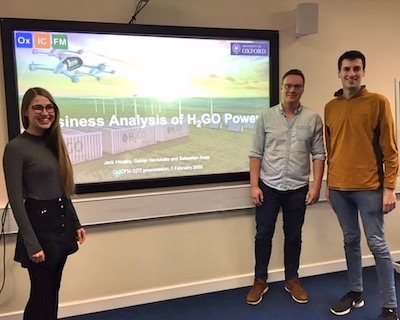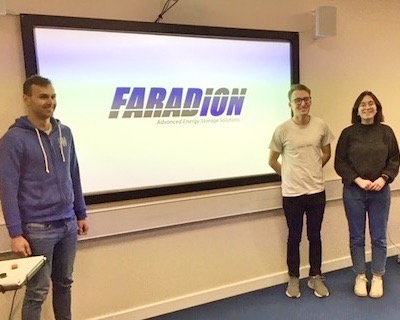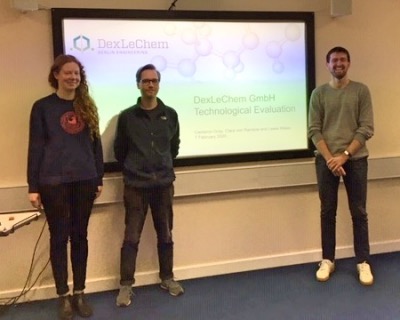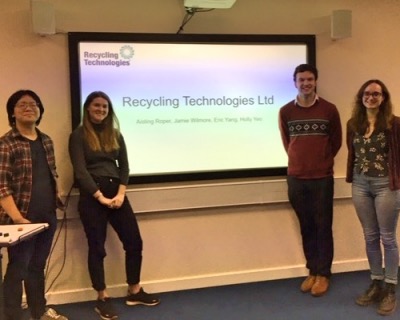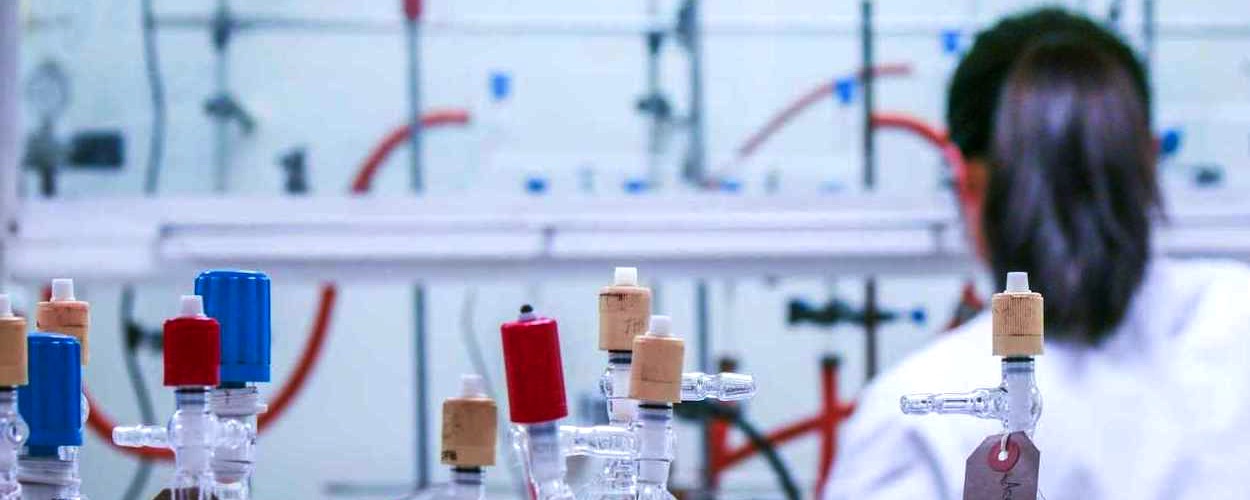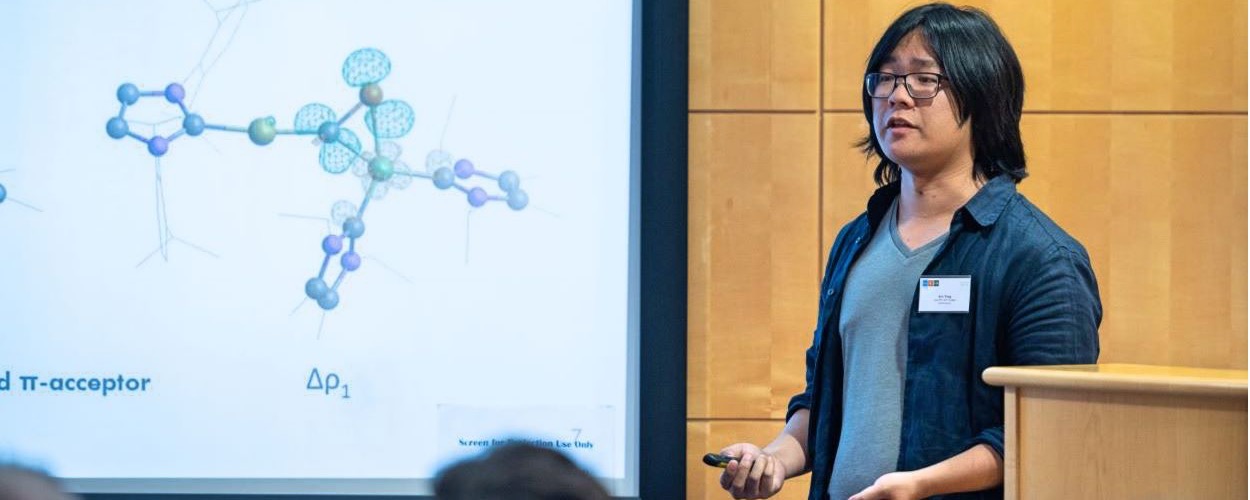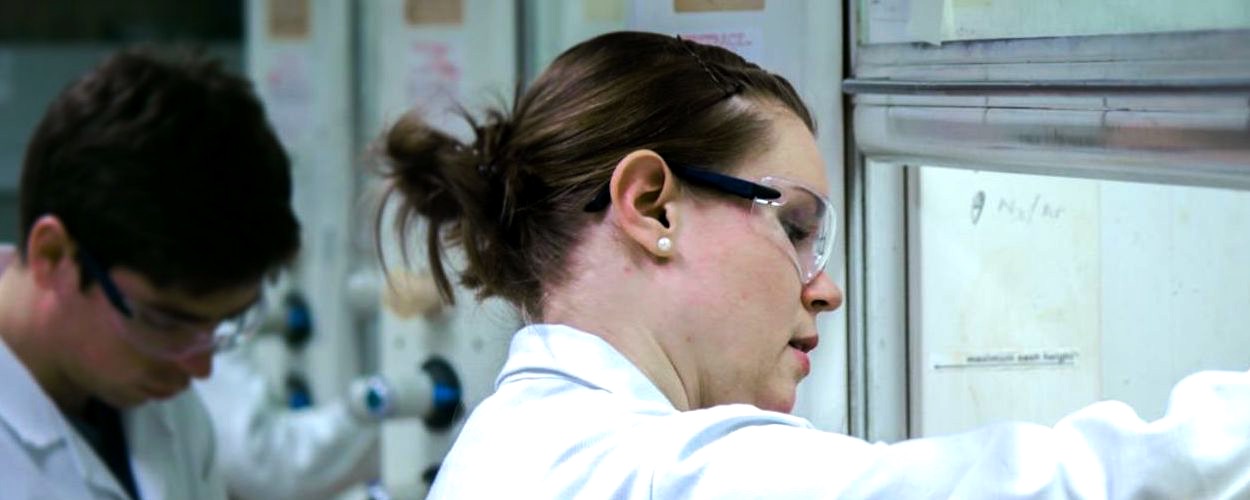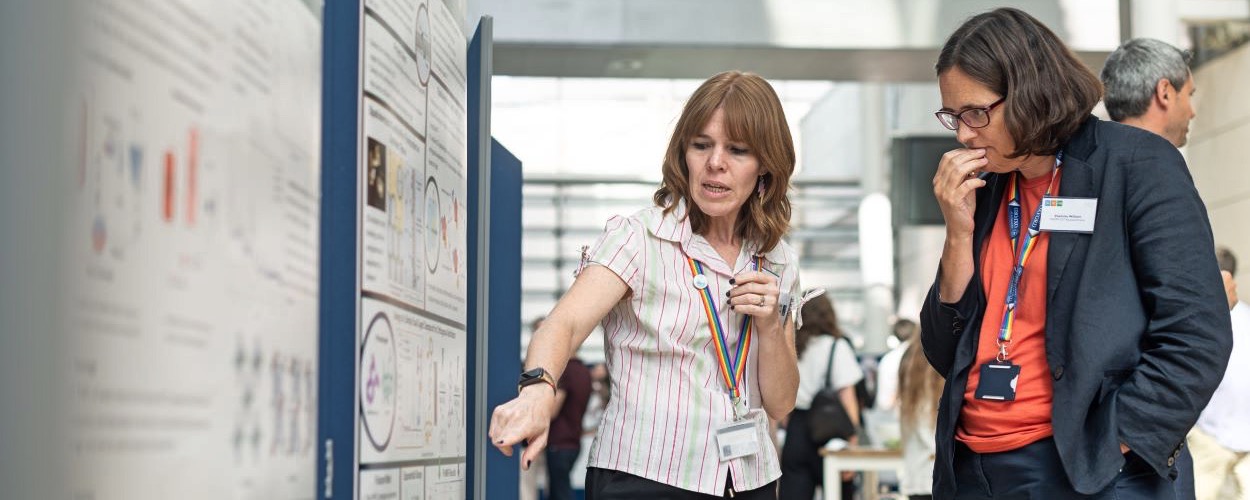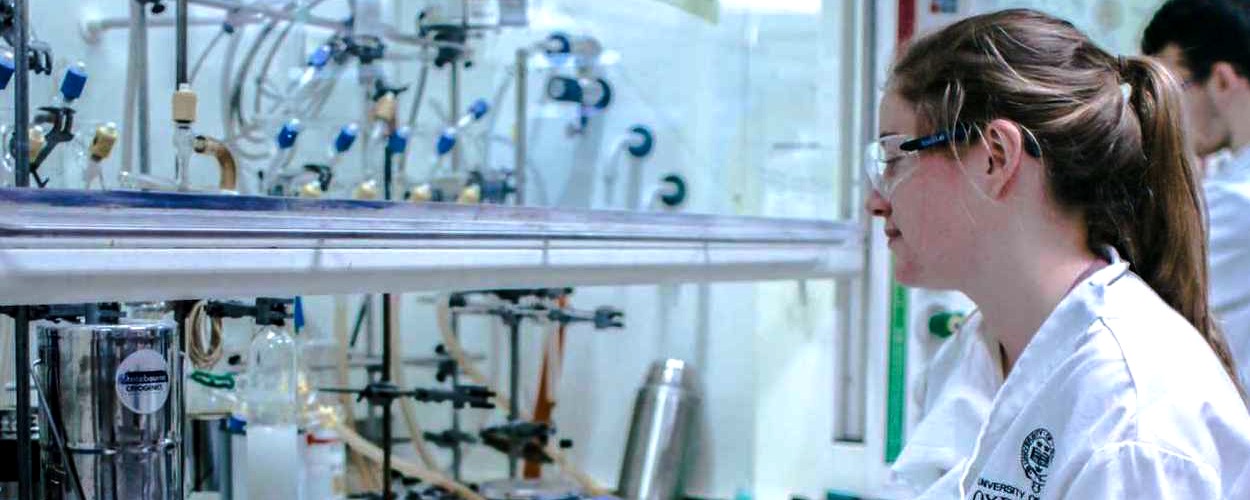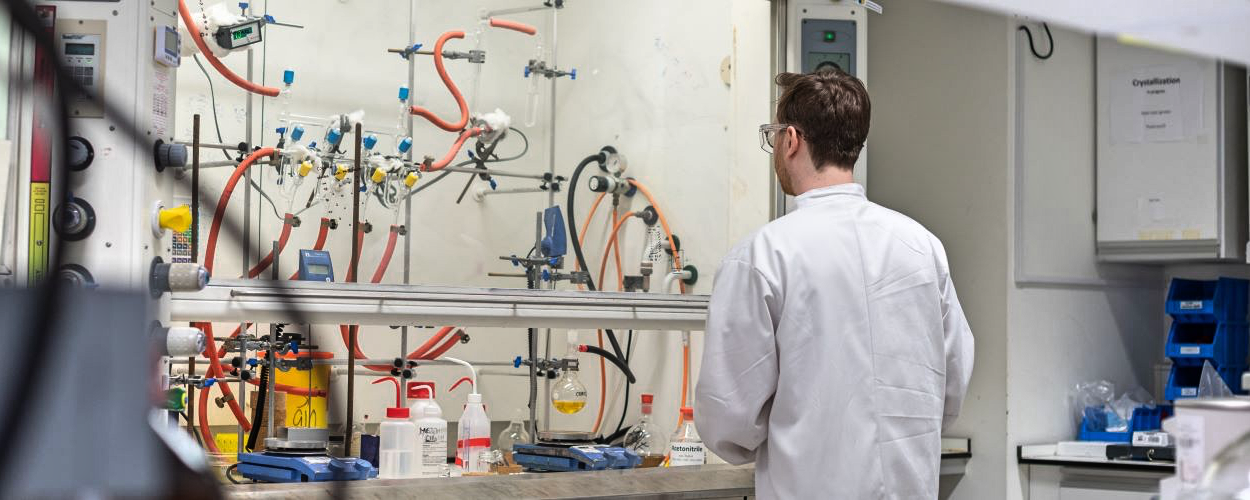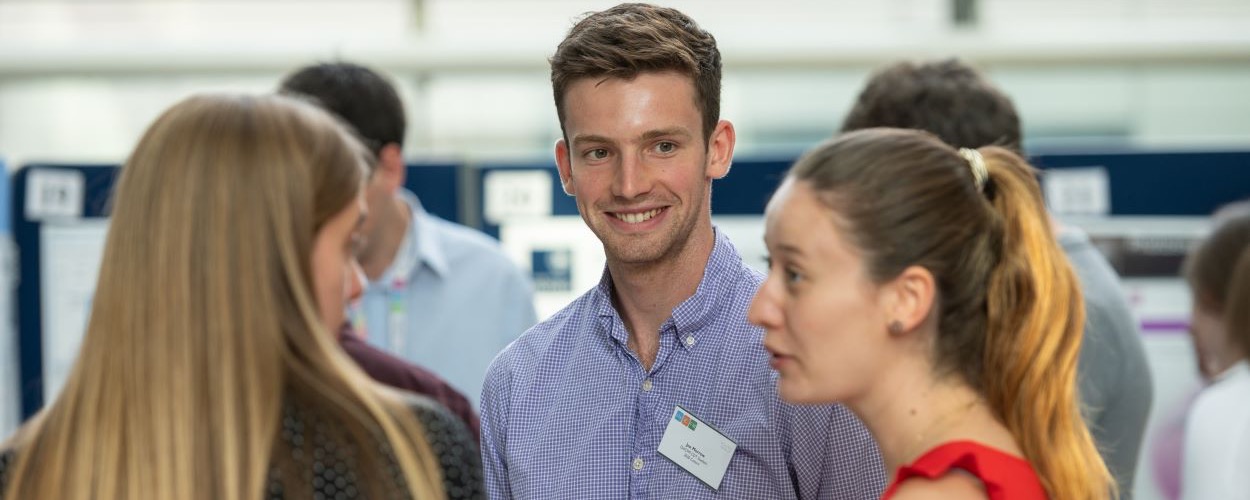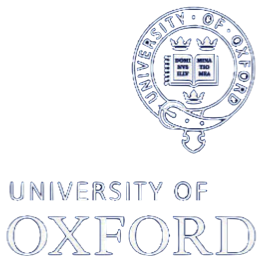Industry Training
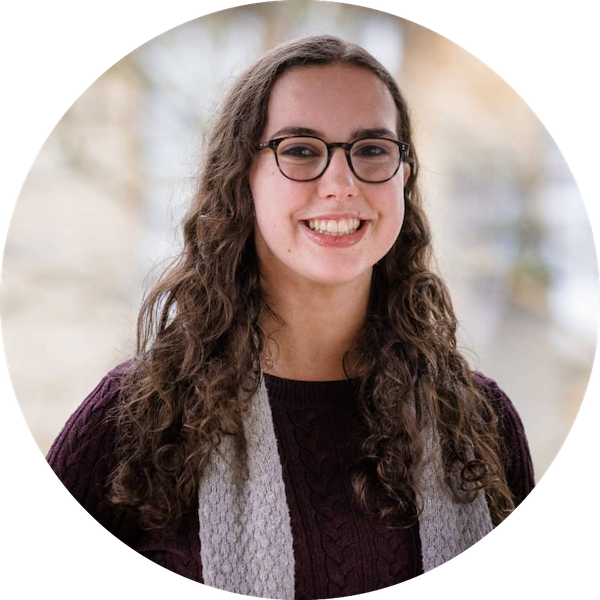
Modules with Industry Training and Exemplars of Future Manufacturing of Inorganic Chemicals
Our centre for doctoral training provides a comprehensive, integrated training package through close interactions with our partner companies and businesses, all of whom are involved in teaching the students. The training is delivered to the students in several different ways, including lectures, case studies, problem solving sessions and site visits.
Drochaid Research Services (DRS), for example, provide a career highlight lecture from Dr Bob Tooze which exemplifies the developments of the alpha process catalysts for methyl methacrylate production as well as other technical challenges he has worked on. Dr Beth Bosley, from Boron Specialties, provides a day long module presenting the challenges and science that underpins the production of highly reactive organo-boron compounds at scale.
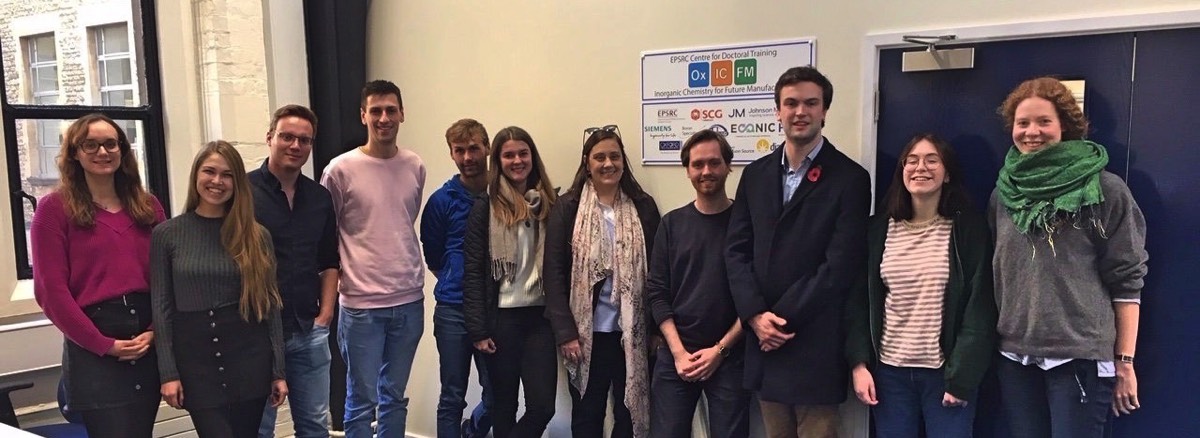
Researchers from High Force Research (HFR) come to Oxford and present a module on their business of creating specialist materials and robust manufacturing processes for pharmaceuticals and diagnostics. During the day the students gain insight into manufacturing procedures and standards, and are tasked with creative problem solving activities.
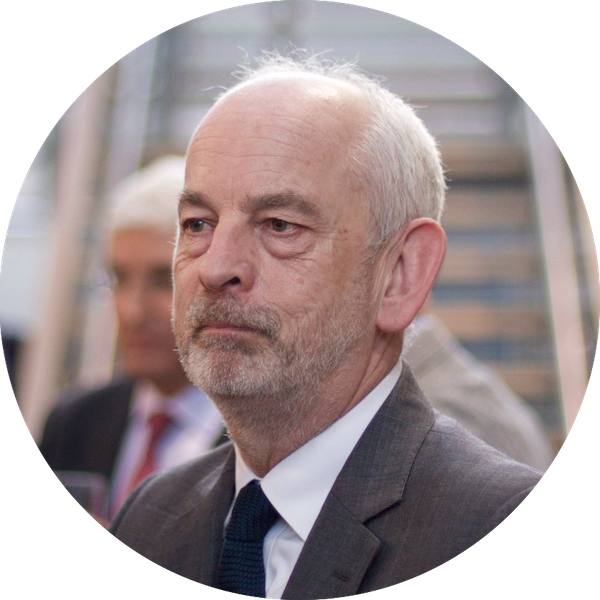
Commercial and Manufacturing Site Visits
The CDT integrates a number of opportunities to visit industrial sites, research laboratories, pilot plants and manufacturing facilities across the UK. Johnson Matthey host a couple of one-day sessions in their Sonning Common Technology Laboratories, which include a tour of the facilities, and case studies of successful uses on inorganic chemistry in delivering batteries, catalysts and emission control technologies. At Siemens, students learn about and see the pilot plant for the ‘Green Ammonia Demonstrator’ – a workshop allows them to explore some of the challenges and research that underpin this process scale-up. During their visit to Oxford Instruments, hosted by Dr Andy Twin and Dr Matt Martin at the Abingdon site, students discover the intricacies of using new materials for making high field superconducting magnets.
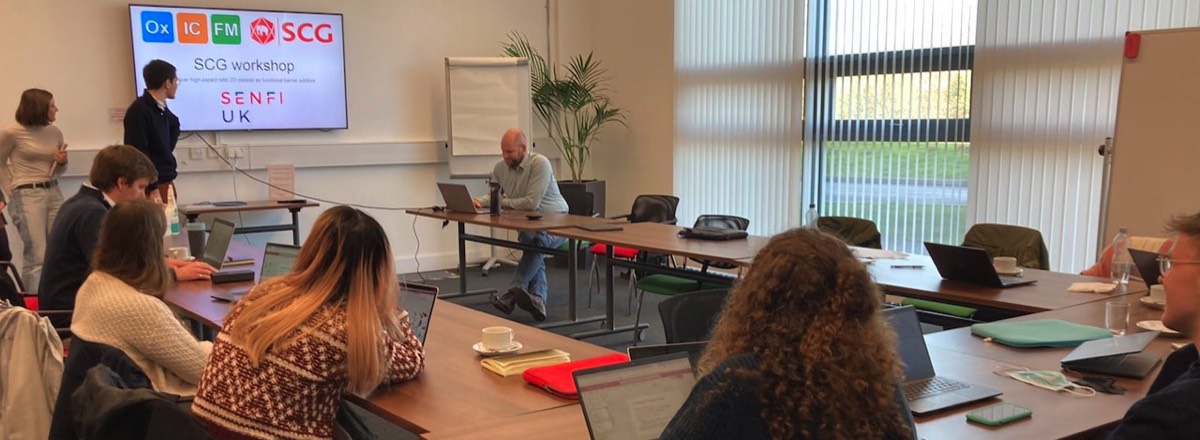
Econic Technologies host a two-day visit by the cohort to their laboratories at Alderley Park. During their time there, students learn about research into new catalysts for carbon dioxide copolymerization and are provided with case studies to exemplify approaches to IP strategy and protection. They also visit the customer demonstrator plant at the Heath in Runcorn, using the innovative carbon dioxide to polymers technologies. William Blythe also host a two-day visit to their site in Accrington. During their visit, students learn about the different considerations of commercialising speciality chemicals. SCG-Senfi host a visit to their Oxford based facility where the students can understand the translation of laboratory-scale science into larger-scale processes for polymerization catalyst supports.
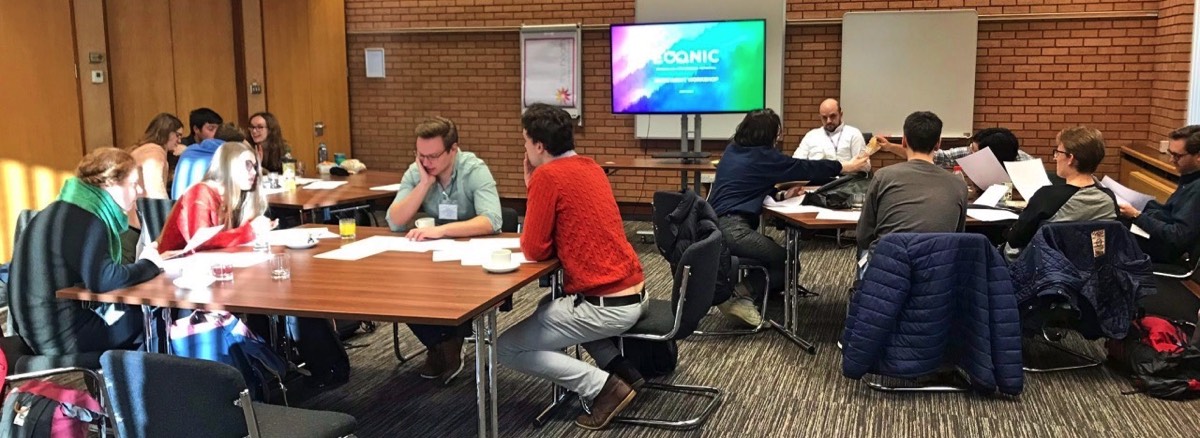
Technology evaluation challenge
As part of the industrial manufacturing module, the students are tasked with carrying out a technology evaluation on a recently formed company, technology or business based on innovative inorganic chemistry. Working in teams the students examine the patents, intellectual property strategy, key competitor technologies and the route to market for the company and technology. They are tasked with assessing both the impact, novelty and potential of the technology as well as to stress-test the route to market and commercial models. Each team presents their companies to a panel of judges, including Profs. Aldridge, Williams and Dr Anne Miller (MPLS Division Enterprise Programme Manager) and there is a question and answer session ending with the decision whether the team recommend investment in their chosen business/technology area.
